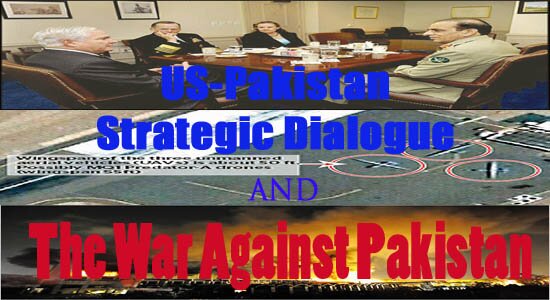 Print This Post
Print This Post  Email This Post
Email This Post
[This is an op-ed that Times of India solicited after the tragic attacks on Indian railway stations in Mumbai on July 11, 2007 and then declined publication]
Thanks to a few insensitive and hawkish Indian voices, the meticulous work of three years of people-to-people contacts between the two nations is in the process of being systematically squandered.
By AHMED QURAISHI
Friday, 13 July 2007.
WWW.PAKNATIONALISTS.COM
ISLAMABAD—Let’s admit it. There were many Pakistanis with smiles on their faces in the first few hours after India’s 7/11.
These Pakistanis were all smiles because they saw a positive development amid the gloom in the aftermath of India’s worst terrorist attacks, which killed hundreds and injured many more. They saw a silver lining in this tragedy. The Indian leadership and media appeared to be reversing a decades-old tradition of publicly accusing Pakistan after such attacks, and vice versa.
Sure, scores of Indian commentators appearing on international television networks unleashed a campaign against Pakistan after the attacks. But we thought that’s because living outside your country, as most of these Indian analysts do, makes you more hawkish. We justified it. We thought that three years of direct peace talks between Islamabad and New Delhi, and cultural exchanges between our two peoples since the launch of Composite Dialogue in January 2004, have injected a new maturity in the Pak-Indian relationship.
The overwhelming majority of Pakistanis, if not all indeed, was saddened by the scenes of carnage from Mumbai. The state-run television network made sure to show all of those scenes. So did the independent Pakistani networks.
The Pakistani optimism was not just emotionalism. We knew that the Kashmiris have been working hard in recent months to show both the Indian government and the world that their objective was not terrorism but a genuine peaceful negotiation to resolve disputes and misunderstandings. Why would some of them go to perpetrate this heinous crime in Mumbai, we wondered, when they sought legitimacy in the eyes of the world? It made no sense.
The optimism of these Pakistanis, however, was shortlived.
Now senior Indian officials are coming out to accuse Pakistan of involvement in indirect ways. Immediately after the blasts, Indians living outside their homeland, and especially in the United States and Great Britain, came out strongly against Pakistan in what appeared to be organized demonization. The Indian lobby in Washington, D.C., is particularly extreme when it comes to Pakistan.
Within hours of the blasts, Mr. Ranendra Sen, the Indian ambassador in Washington, said the cause of the attacks “appear[ed] to emanate from our neighborhood, which is […] the epicenter of global terrorism.”
Sitting in Islamabad, many Pakistanis like me can’t help but feel that this was the opening salvo in an organized media trial of Pakistan in which almost no Indian ‘media asset’ was left unutilized. This is a campaign of insinuations and suggestions that spares no trick in the media book to implicate Pakistan in the attacks. No trick except for a direct accusation, of course.
In the absence of any concrete evidence linking Pakistan to the attacks, many Pakistanis feel that some hawkish elements in the Indian ruling elite are focusing now floating theories that point the finger toward Pakistan without forcing New Delhi to directly accuse Islamabad.
Mr. Shayam Saran, India’s foreign secretary, is a good example.
Just read his carefully worded recent statement that threw cold water on three-years of hectic backstage diplomacy to diffuse the Pakistani-Indian conflict. “As a result of these terrorist attacks,” said Mr. Saran last week, “it is becoming very difficult to take forward the peace process.”
I urge India’s massive peace constituency to see this statement for what it is. This statement is a masterstroke; simple and lethal. It virtually freezes the peace talks with Pakistan without actually accusing Pakistan of sponsoring the Mumbai attacks.
This has to be the worst kind of manipulation on the part of a hawkish segment of the Indian ruling elite. In Pakistan, many Pakistanis feel a majority of Indians want to resolve all outstanding disputes between the two nations. The only obstacle is a small clique of hawks in New Delhi who want to maintain an unreasonable hardline on Pakistan. India’s hawks need to be restrained along with Pakistan’s. All deals in the world require a win-win situation for all parties. Islamabad wants India to be equally a winner in any peace deal. But sorry, not the Indian hawks. They want a Pakistani humiliation as a precondition to any deal, if at all.
Thanks to a few insensitive and hawkish Indian voices, the meticulous work of three years of people-to-people contacts between the two nations is in the process of being systematically squandered. The Pakistani peace constituency fears that India’s anti-Pakistan tirades, backed by no valid evidence, are threatening to dissipate the immense feelings of sympathy that developed within ordinary Pakistanis for their neighbors across Pakistan’s eastern borders.
There are tens of Indian organizations inside India fighting New Delhi. All of them are lethal. All of them are also non-Muslim, except the ones in Kashmir. Most of the Indian groups fighting the state are non-Kashmiri. All of them would love to bloody New Delhi’s nose if they get a chance. But none of the Indian commentators tried, if only for the sake of fairness, to include the possibility of the involvement of these militias in the blasts.
It’s funny. You will find more Pakistanis publicly disagreeing with Pakistan’s position on Kashmir—and being tolerated by Islamabad—than you will find Indians publicly disagreeing with New Delhi on Kashmir. For most Pakistanis who otherwise wish India and Indians well, this is just one of a long list of contradictions they see in the world’s largest democracy.
The worst part of all of this is the growing perception in Pakistan that even the most liberal parts of the Indian intelligentsia are willing to encourage Pakistan-bashing. This has sent an ominous signal to liberal elements in Pakistan. Liberals in Pakistan pushed their government to give India more concessions in the peace negotiations. The Pakistani hawks opposed. Time – and recent Indian actions – are proving the Pakistani hawks right.
One of the biggest casualties of the Mumbai attacks is the truth. New Delhi hawks want to give the impression that they are freezing peace negotiations with Pakistan because of the Mumbai blasts. The truth is, Indian hawks have been stalling the Pakistani-Indian peace talks for months now. The Mumbai blasts have given the Indian obstinacy another lease on life.
The writer is a foreign policy commentator on the state-run PTV Network in Islamabad.
© 2007-2009. All rights reserved. AhmedQuraishi.com & PakNationalists
Verbatim copying and distribution of this entire article is permitted in any medium
without royalty provided this notice is preserved.







Leave a Reply